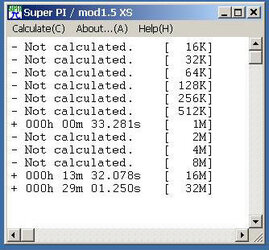trodas
Disabled
- Joined
- Jun 3, 2004
- Location
- Czech republic

My sub 30 result on 2800Mhz on Sapphire Pure Innovation "Grouper" A9RX480. I can do it way better, as I reached 3Ghz too ( http://valid.x86-secret.com/show_oc.php?id=148241 ) but unfortnately I killed my opty by wrong voltage selection in bios - 2.0Vcore.
Fanless watercooling, not naked die. Could run faster for sure, but I was just... stupid




